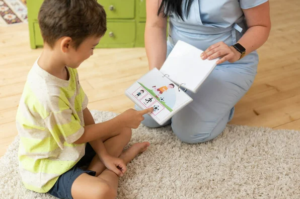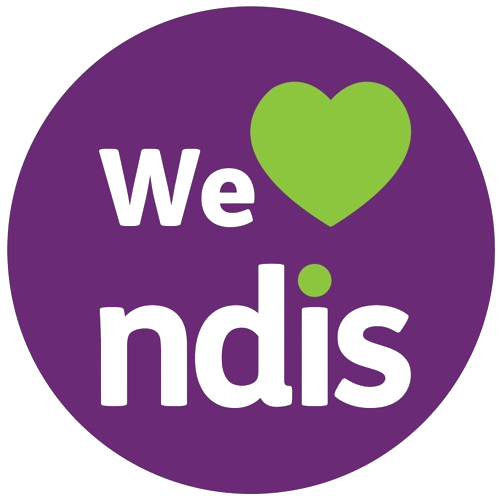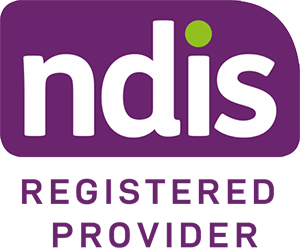How Can Our Speech Pathology Central Coast Team Help?
Early identification and intervention of communication concerns and difficulties is crucial in setting children up to learn effectively, build positive relationships and thrive as they grow up. Beam Health’s Speech Pathology Central Coast team, based in our Tuggerah, Central Coast clinic, provide a holistic approach and work collaboratively with children, their families and relevant health and educational professionals to enhance the development and growth of appropriate speech, language and communication skills.
 Our Central Coast Speech Pathologists are committed to empowering children and families with communication skills which foster learning and encourage your child to join in on activities at home and within the community. We can provide care and support for Central Coast children whom have concerns including speech and articulation, language, literacy, functional communication, social communication and fluency/stuttering.
Our Central Coast Speech Pathologists are committed to empowering children and families with communication skills which foster learning and encourage your child to join in on activities at home and within the community. We can provide care and support for Central Coast children whom have concerns including speech and articulation, language, literacy, functional communication, social communication and fluency/stuttering.
Our Speech Pathology Central Coast team support children and families through screening, assessment and intervention at our clinic, in the home or at school. We also proactively support and educate parents, children and professionals through a number of workshops and group programs. We also currently offering online speech pathology services through teleheath & private video sessions. NDIS and Medicare funding may be available. For more information about NDIS eligibility, visit: https://www.ndis.gov.au/
We operate a multidiciplinary model of therapy support at Beam Health, meaning any child referred to Beam for speech therapy, can also easily access supports from our Psychology, Occupational Therapy or Behaviour Support Practitioner teams.
Our Speech Pathology team can help in the following areas:
Articulation is the way in which we produce speech sounds using our tongue, lips, teeth, jaw and vocal folds. Children learn to produce speech sounds as they grow, and different sounds are expected to develop at different ages. It is normal for young children to make speech errors as their language develops; however if they are continuing to make mistakes with a particular sound or group of sounds past the expected age, then it is likely that they have a speech sound delay.
Speech sound delays may include articulation errors (difficulties with making the particular sound) or phonological process errors (difficulties with sound patterns). Speech sound delays may be due to a number of factors including hearing, a history of ear infections, family history or a child may have incorrectly learnt the rules of speech sound production or how to produce a particular sound. If your child is difficult to understand whilst other children their age are speaking clearly, they may have a speech sound delay.
If you have any concerns, our Speech Pathology Central Coast team can help by assessing your child to identify the cause, and plan intervention with your child and family. Intervention may include regular appointments and activities for you to do with your child at home. With appropriate speech therapy, many children with articulation or phonological concerns experience significant improvement in their speech.
Language refers to the way in which we understand and use words to share ideas, feelings, desires, thoughts and information. Language is made up of several components including:
*The meaning of words
*The inclusion of grammar to create meaning
*How we join words together to create sentences
*How we use and select language to suit a situation
Children can experience difficulties in one or more area of communication, such as receptive or expressive language, speech sounds and social communication.
Receptive language is a child’s ability to understand and process spoken or written language. Children develop their receptive language skills as they grow older. Signs that a child may be experiencing difficulties with their receptive language vary with age, but may include:
*Difficulties with following directions
*Difficulties with answering questions
*Difficulties with understanding long or complex sentences.
*Difficulties with the meaning of words and understanding figurative language such as similes, metaphors, humour and sarcasm
*Repeating back what is said to them
*They may appear to ignore or not listen to you
*They may not keep up with classmates, either with school-work or socially
*They may have behavioural problems, be acting up in class or experience frustration.
*They may be easily distracted or drift off when listening to speech or stories.
*They may appear to be forgetful. For example, they only complete part of an instruction or remember part of a shopping list.
Expressive language is a child’s ability to express themselves and share meaning, generally through speaking or writing. It can also include alternative forms of communication such as signing, alternative and augmentative (AAC) communication in the form of communication supports/aids. As children grow, they learn to join words to create sentences, using correct word order, vocabulary and grammar. It is different to speech sound difficulties, as expressive language is how your child shares meaning and expresses themselves, not the way in which they pronounce sounds or words.
Signs that a child may be experiencing difficulties with their expressive language vary with age, but may include:
*Poor sentence or grammatical structure
*Limited content in their speech
*Limited vocabulary
*Confused meaning and grammar
*They generally use short, simple sentences.
*Difficulties with expressing their message and coming to the point
*Difficulties with starting or participating in conversations.
*Difficulties with recalling or retelling information.
*Difficulties with completing oral and written narratives and/or assignments.
*They may have trouble finding the right words
*Unfamiliar people find it difficult to understand them
If you have any concerns, our Speech Pathology Central Coast team can help by assessing your child to identify if they are experiencing difficulties with their receptive and/or expressive language. A formal language assessment identifies specific areas of development and strengths that your child may have, so that intervention may be planned with your child and family. Some children benefit from one-to-one therapy to develop and expand specific language skills, and sessions may be provided by our Speech Pathologists at our clinic, in the home or at school. School-based language intervention is useful to help your child develop and use skills and strategies in their learning environment, so that participation and engagement may be maximised.
Literacy is your ability to read, write and spell. You start to learn language as a baby. You learn how to say sounds and put them together to make words. You learn to use words to tell people what you think and how you feel. These early speech and language skills help you learn to read, write and spell. Reading is the ability to understand meaning from written words, and spelling is the ability to write letters to create words that express meaning.
Difficulties with reading, writing and spelling can impact your child’s experience at school, their learning, participation, academic success, self-esteem and confidence. Some signs that a child may be experiencing difficulties with their reading, writing and spelling include:
*Mispronunciation of letters or words
*Confuses or has difficulty distinguishing similar sounds
*Not understanding or remembering what they have read
*Guessing a word based on its shape or the first letter
*Skipping words when reading.
*Forgetting how to spell familiar words
*They find writing to be slow and tiring
*They dislike reading and writing, and may try to avoid it.
Our Speech Pathology Central Coast team support children who experience difficulties with reading, writing and spelling, with assessment and intervention to support the development of literacy skills. We are also able to work with your child’s teacher to make it easier for them to learn in school. Unfortunately reading difficulties, do not tend to go away; children need to be taught skills and strategies so that they can successfully decode and understand information they are reading. We also offer telehealth Speech Pathology and online service to help make it easier for those who are unable to visit our Speech Pathologists in clinic.
Reading, writing and spelling can be hard, but our friendly Central Coast Speech Pathologists are available to help.
Functional communication refers to how an individual expresses their needs, wants, feelings and preferences, in a way that others can understand. Some of these messages may include “I want that”, “I am hurt”, “I need to use the bathroom” or “No, I don’t want to”.
For most children, functional communication begins to emerge in the first year of life with gestures, followed by spoken words and later, simple sentences. However, for children with speech and language delays and/or additional needs, this may happen much later. Children with significant language impairments may be developing their functional communication when they are older, in a way that can be understood by a range of communication partners. Functional communication varies in its expression and may include gestures, verbalisations, signs, pictures, words, communication devices and so forth. These communication supports are generally referred to as Alternative and Augmentative Communication (AAC) aids. Teaching functional communication skills is essential so that an individual can meet their basics needs and wants. When children and adults can functionally communicate, they are ready to learn choice making and may increase their independence and autonomy.
At Beam Health, we recognise that all children are individuals and that a ‘one size fits all’ approach does not result in successful functional communication, where one’s needs are met. Our Tuggerah Speech Pathologists work closely with families and your child to develop a profile of their communication needs, strengths and preferences, so that an individualised, multi-modal communication system may be developed. We also collaborate with your child’s network to meaningfully and consistently support the teaching and use of functional communication within routines and across environments. Our Central Coast Speech Pathologists offer a professional and confidential telehealth service, using technology that enables you to access services wherever your location in Australia.
Social communication is the use of language in social contexts. It includes social interaction, social understanding, language processing and the rules that we follow when we talk, known as pragmatics. There are rules about when and how you should talk to people. For example, we learn how to let someone know when we want to change the topic, we know how to talk to our friends versus our teachers, and we use facial expressions or gestures to share how we feel. Knowing and using these rules makes it easier to communicate.
Social communication includes three major skills:
*Using language for different reasons (e.g. requesting… “I want a cookie please”)
*Adjusting language for the listener or situation (e.g. talking differently in a classroom than on a playground)
*Following rules for conversations and storytelling (e.g. taking turns).
Children naturally break some of these social communication rules as they learn and develop their language and communication skills. However, some children can have difficulty identifying and understanding these rules, resulting in them finding it hard to talk to others and make friends. Social communication difficulties may occur in combination with some other areas, such as speech, language and/or learning difficulties.
We help children with social communication problems. We can screen or assess your child’s speech and language skills and help your child learn how to use language with different people and in different situations.
If you have any concerns, our Speech Pathology Central Coast team can help by screening or assessing your child’s speech and language skills, and support them to learn how to use effectively use language with different people, to suit different purposes and situations. We provide speech pathology intervention in the clinic, at home or at your child’s school so that they may learn and practice skills and strategies in their everyday environments. Our Central Coast Speech Pathologists also run social skills groups where children can meaningful and effectively develop their social communication skills, with their same-age peers.
Fluency refers to the smoothness with which sounds, syllables, words and phrases are joined together during speech. A fluency disorder is the interruption of the smoothness of speech. It is commonly referred to as ‘stuttering’. Characteristics commonly displayed in stuttering are:
- repeating sounds and syllables, such as “I I I I I can do it”;
- prolonged sounds, such as “where is my sssssister?”;
- blocking of sounds, where a child tries to say a sound and nothing comes out;
- broken words, such as “mon…key”.
Children may develop non verbal behaviours, such as head movements and blinking, which are associated with their stutter. Fluency disorders may also
involve the interruption of the normal rhythm of speech.
If you are concerned about your child’s fluency, a speech pathologist is a support. Our Speech Pathology Central Coast team is trained to assess your child’s speech and recommend any assistance or therapy that may be required. Our Central Coast Speech Pathologists are ready to assist your child.
Frequently Asked Questions
Our Central Coast Speech Pathologist will work closely with parents and carers and involve them as much as possible in the process to work toward the best possible results. It is important to be present during your child’s session as it helps to learn about specific strategies which will help the at home and in daily activities. Your child may prefer to work individually in the session which is fine, as we can talk with you at the end of the each session.
The number of sessions you have with your Central Coast Speech Pathologist will be different for each individual. For some, their concern or problem may only require a short intervention, whilst other may be more complex and need a longer term approach. Your Speech Pathologist will work with you and your child to develop a plan to provide you a clearer idea of what to expect.
Our standard appointment time for a Central Coast Speech Pathologist is 50 minutes direct session time, plus 20 minutes non-face-to-face clinician time for notes and preparation. Shorter and longer appointment times may be available upon request.
Appointment times for Assessments can vary also.
No you don’t need a referral to see one of our Central Coast Speech Pathologists. You may get in touch and book directly with us, however, Medicare rebates may be available in some circumstances through a GP referral. Talk to your GP to find out if you are eligible.
Seeing a Speech Pathologist at Beam Health will cost $194 for 50 minutes (+ 20 minutes non-face-to-face clinician time for notes and preparation) or as per the NDIS Price Guide. Medicare rebates or NDIS funding may be available.
A speech pathologist is a university-trained health professional who works with anyone who has trouble communicating. Speech pathologists help people find the best way to communicate to meet their needs. This might include ways to improve speech clarity or fluency, or signs, symbols, gestures and other forms of assisted communication.
Our Speech Pathologists can help with:
- Articulation (speech)
- Language (understanding and expression)
- Social Skills (play skills, turn taking, making friends, developing eye contact, conversation skills)
- Play- move this to social skills
- Stuttering
- Voice problems
- Literacy (reading, writing, spelling)
Under certain conditions, rebates may be available through a GP referral. For example, if you have a Enhanced Primary Care/Chronic Disease Management Plan from a GP, you may be eligible for a rebate of $53.80 (Speech Pathologist) for up to 5 sessions in a 12 month period.
You may also be eligible for Private health fund rebates depending on your provider and level of cover. It is best to call them to check prior to your first session. You cannot use a plan from GP and private health fund rebates at the same time however.
At the start of your first session, your Central Coast Speech Pathologist will briefly run through important paperwork with you. This will include a brief information form for you to complete, a consent form (covering issues such as confidentiality and fees), and other important information about your support. If you have been referred by a third party or have a medical referral this will be discussed.
The rest of the session our Speech Pathologist will spend time understanding your situation, concerns and what you would like to achieve. Sometimes people are concerned about what to say but please know your psychologist will know what questions to ask to get the relevant information to form a good platform to work from.
It is important to understand that there is no “typical” session and there are a range of different approaches we will use that are tailored to your specific concerns and situation.
We sure do. Our Central Coast Speech Pathologists are well positioned and trained to work in schools, preschools and early learning settings and closely support educators, teachers and other professionals in a variety of ways including:
- Collaboration with your child’s school and other health professionals.
- Preschool screenings.
- Workshops for educators at preschools and schools.
- Parent information workshops/webinars.
- Small group intervention
- Individual intervention
Yes we sure do. Our Central Coast Speech Pathology team has lots of experience and training in supporting children and young people with Autism. We are lucky to have a an experienced multidisciplinary team of Speech Pathologists, Psychologists, Occupational Therapists and Behaviour Specialists that can provide evidence based, support and intervention.
Children all develop differently and at a different rate. Our Central Coast Speech Pathologists can help work out if your concerns about your child are something that would benefit from further assessment or intervention or whether they are to appropriate for their age. Some examples where seeing a Speech Pathologist would be of benefit include:
- If your child is becoming frustrated when trying to communicate.
- If your child needs help to learn new words or put words together.
- If your child has difficulty pronouncing certain sounds and if you or others find it difficult to understand them.
- If you need to support your child to follow instructions, routines and understand everyday objects and concepts.
- If your child has difficulty communicating their needs and wants clearly.
- If your child needs support to play with friends, talking to friends and expressing their emotions.
- If your child is repeating sounds or words when talking or gets “stuck” on their words.
- If your child needs help with reading, writing or spelling.
- If your child’s voice sounds hoarse or croaky.
- If you have any worries about your child’s communication it is best not to ‘wait and see’ and check in with a Speech Pathologist.
We sure are. Beam Health is a registered service provider for multiple categories of support including the key therapeutic categories of Improved Daily Living and Improved Relationships. Please talk to our helpful administration team if you have any questions about what you can access at Beam Health with your NDIS funding, including Speech Pathology services.
It is understandable for kids to be anxious and worried about seeing a Speech Pathologist. They don’t know what to expect and may worry they there is something ‘wrong’ with them. It may be useful to explain that coming to see a Speech Pathologist is like seeing a doctor for your physical health; a Speech Pathologist can assist to communicate effectively. We see lots of children for all sorts of reasons.
Usually after the first visit, children will look forward to sessions and understand that they are in a safe place where they can just be themselves. Our Central Coast Speech Pathologists will always try and lean upon your child’s interests and strengths throughout the sessions to make them as enjoyable and engaging as possible.
Yes we offer telehealth or online sessions for those where it is suitable and preferred. Our Speech Pathology team based in Tuggerah uses a high quality and safe telehealth platform which is easily accessible for everyone. Let us know if you would like to arrange a telehealth session.
Helpful Info
What is communication?
Everyone talks about the importance of communication but what does it actually consist of and why is it so important?
Preschoolers: Connecting & communicating
Great information for parents of preschoolers about communication skills development from the Raising Children website.
Baby Talk Workshops
Learn the fundamentals of speech and language development for babies up to 12 months.






